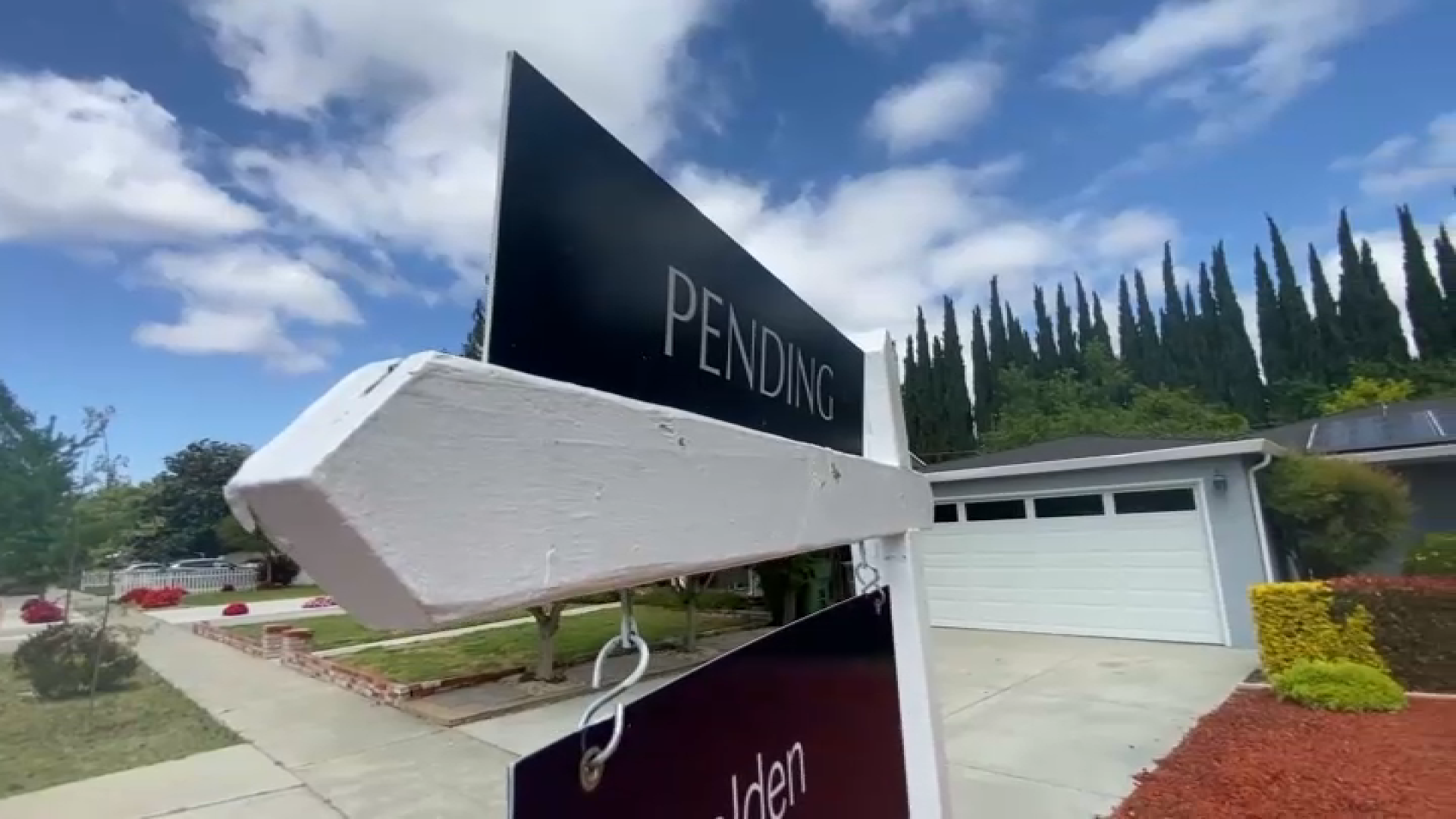If you asked Jay Demello where he would be living five months ago, he never would have guessed that he’d be sleeping under BART tracks at a homeless encampment.
“I was that person driving down the street going, ‘look at that nasty camp,” the freelance contractor said. “I would shake my head and say, ‘Someone needs to do something about it.”
But a series of events, each seemingly worse than the last, pushed him out of his apartment and onto the streets. For a while he slept in an RV, until it was impounded due to outstanding tickets. He couldn’t afford the bill, so he wound up losing all of the construction tools inside.
“Without my equipment, I couldn’t get work,” Demello said. “It was really one thing after another...I don’t think people realize how easy it is to suddenly be homeless in the Bay Area.”
Demello is one of about 30 people who live at the so-called “Here There” homeless encampment at the Berkeley-Oakland border, named for its presence at the prominent art installations that spell out the words. The camp, equipped with a couple dozen tents, a kitchen space, solar panels and a reading area, has been there since last January.
Residents, who collectively refer to themselves as “First They Came For The Homeless,” said the encampment has been a lifeline for homeless people who want to stay sober and live in a supportive community. They also consider their presence to be a long-running protest against the treatment of impoverished people across the Bay Area.
But now, displacement is looming over the group, an outcome that members knew was in the offing but still came as a disappointment. Although they had been granted a temporary respite on Oct. 24, BART won a lawsuit to evict the group on Wednesday and quickly posted 72-hour notices to evacuate. Crestfallen, residents began packing up some items on Friday.
Local
“BART will probably come first thing Sunday morning with all of their equipment and kick us out,” said Sam Clune, a resident at the camp who has gone through numerous camp evictions. “They always do it early in the morning, when no one else is around.”
BART said that it had received more than 50 complaints about encampments on its property. Another camp at 63rd Street and Martin Luther King, Jr. Way in the city was cleared out by BART police on Oct. 25 after neighbors complained following a fatal drug overdose, fires and an assault at the site.
“We’re not that camp,” Clune said, suggesting that the two were lumped together and, subsequently, punished together. “...One of the reasons we’ve been able to maintain our support from people in the community is because of what we try to do here, which is to provide a safe place to live.”
In a statement, BART representatives said they provided a list of resources — including living shelters, meal services, bathing facilities, launderettes, and storage lockers — to the residents of both encampments.
“BART will continue to work with the courts and the community to resolve this complex issue,” BART Spokeswoman Alicia Trost said in a statement. “We have provided adequate notice to relocate alongside information about available resources. We are hopeful the western encampment will comply with the notice to vacate.”
Members of First They Came for the Homeless did not say where they plan on going next due to concerns over security. However, they vowed to stay together and in Berkeley, as they have throughout a number of other evictions while on the “poor tour” — a name they use to describe their movement around the city.
Most residents at the camp don’t have family to rely on, and more than half suffer from illnesses. One resident has Parkinson's Disease, another has brain cancer, and yet another is awaiting bypass surgery, Clune said.
“This is where you go if your family is already dead or without means and you find yourself sick,” Clune said. “We’re trying to deal with medical issues while we deal with the fact that we don’t have walls. It’s not easy.”
Resident Tracey Clinton credits community support with allowing the group to remain as long as it has. Friends of Adeline, a South Berkeley community group, provided the encampment with a portable toilet and hand washing station, while others have dropped off food, books, chairs and more. Before getting the eviction notice, the residents had been able to decorate the space with fresh-picked flowers and hand-made motivational signs.
“The support we’ve gotten here, the outreach that has been for us, it’s like nothing I’ve ever seen,” Clinton said. “Even if (BART police) come and crunch that tent I’ve been sleeping in, I’ve still won. I might be losing down the road, but right here and now, I’m a winner.”
All told, about 1,000 people currently live on the streets or in shelters in Berkeley, a 16 percent jump in the homeless population since 2015. Meanwhile, the number of people living on streets and sidewalks has skyrocketed 79 percent since 2009’s count, a statistic Clinton said represents the ineptitude of homeless shelters in dealing with the crisis.
“Shelters kick you out during the day,” Clinton said. “You can’t actually live there.”
Facing pressure from First They Came for the Homeless and other supporters, Berkeley City Council extended its existing declaration of a “homeless shelter crisis” on Tuesday. The tactic will allow for more “flexibility” to create temporary homeless shelters and other services, Berkeley Mayor Jesse Arreguin said.
Throughout his 2016 campaign and in his first term, Arreguin has repeatedly stressed the city’s need to create and improve services for its homeless population. A major part of that plan is the Pathways Project, a $2.8 million initiative debuting early next year that promises to connect homeless residents with services as well as housing.
But at Tuesday’s meeting, the city council met resistance from advocates and homeless residents, some of whom said the council has been slow to act. Some also claimed that the city should have done more to protect First They Came For The Homeless from eviction.
“We don’t own the land at the Here There encampment,” Councilwoman Kate Harrison said, defending the council. “We realize it would be best if we could lease or purchase this property, but we have not had a receptive audience to that. There wasn’t much that we could do.”
Residents are hopeful that the City Council will follow in the recent footsteps of Oakland and sanction some encampments, a complicated move that will be investigated and discussed later this month. Doing that would give people who live in so-called “tent cities” more legal footing and stability, but Clune isn’t holding his breath.
“The city spends a lot of time talking about big solutions that they’re not going to do,” Clune opined. “A lot of it’s just talk, with very little actually getting done. It seems like they’re more interested in adding to the fiefdom of workers and machinery more so than it is in solving the homeless problem.”
Clune is hopeful that community support will follow the camp wherever it ends up next, especially as he and his friends brace for the winter months. On Friday evening, as they were debating their next steps, it started to rain in Berkeley.



